UIU Mars Rover team triumphs at the University Rover Challenge 2022
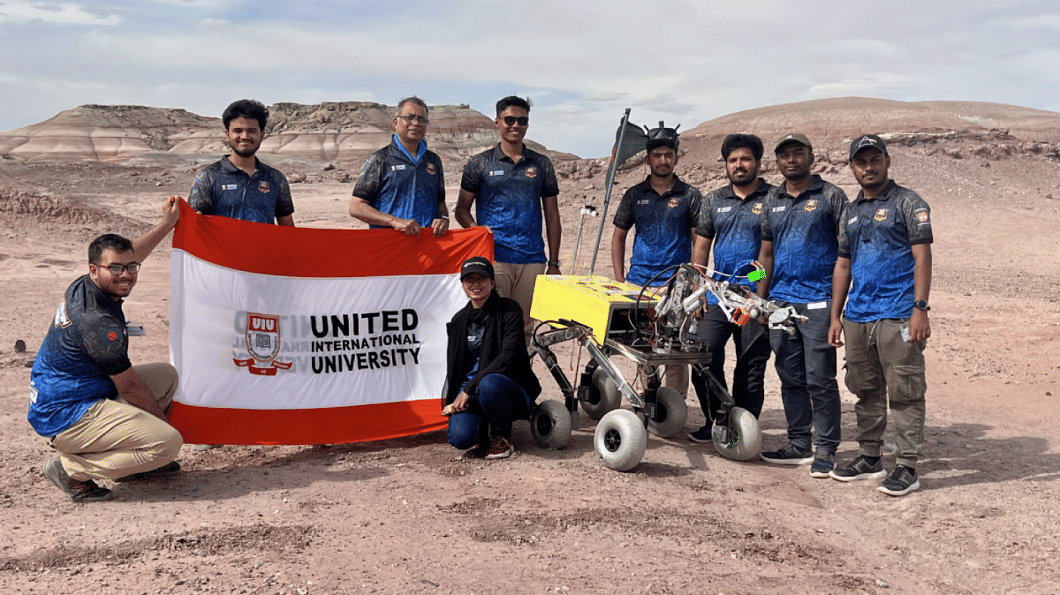
UIU's Mars rover – nicknamed "MAVEN" – ranked 1st among Asian countries and 13th among 36 global finalists at the University Rover Challenge (URC) 2022. The event was organised by the Mars Society, a US-based non-profit organisation that advocates and encourages human and robotic exploration on Mars, and also seeks to establish a permanent human presence on the Red Planet. The three-day world final round of the event took place from June 2-4 at the Mars Desert Research Station (MDRS) in southern Utah.
Before the final round, the UIU Mars Rover team competed with 98 other universities from all around the world to secure a place in the finals. MAVEN achieved an outstanding score of 90.92 out of 100 to be selected as one of the 36 finalists from 10 countries including the USA, Canada, Australia, India, Poland, Columbia, Egypt, Mexico, and Turkey.
In the initial round, the team had to submit a System Acceptance Review (SAR) video to the competition. This video focused on the various capabilities of the rover, and its ability to perform a variety of missions like terrain traversal and delivery, equipment servicing, and autonomous mission. MAVEN also performed a variety of scientific tests where it analysed soil and rock samples to detect the presence of life. The video also went through MAVEN's core electronic and communication systems, as well as its testing and operation capabilities.
In the final round, participating teams had to perform four missions in front of a jury. These included a science exploration mission, autonomous navigation, extreme terrain traversal, and equipment servicing. UIU's Mars rover completed all four missions and became the most successful team from Asia.
The UIU Mars Rover team consists of student members from the UIU Robotics Club. They come from different disciplines such as computer science, engineering, and business. UIU's CSE department lecturer Akib Zaman is the team director and mentor while Rokib Hasan, a student from UIU's CSE department is the team leader. Former CSE department head of UIU Prof. Hasan Sarwar is the team advisor. Under their supervision, the team is further divided into six sub-teams for various operations.
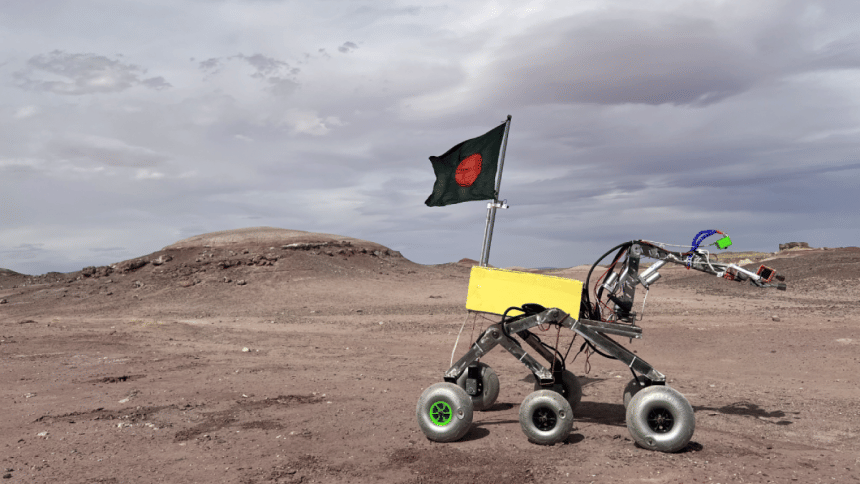
The journey to the top, however, did not come without hard work, dedication, and sacrifice. And no one knows it better than the team who worked around the clock to help MAVEN reach the top.
"Forming the team was the first major challenge," says team director and mentor Akib. "After that, we had to deal with the fact that the technology that goes into making a rover is not readily available in Bangladesh. We had to work out ways on how we could import it from countries like China and the US."
Building a rover using imported hardware is not an easy feat, especially when you think of it from a financial point of view. However, UIU had it covered.
"Managing the funds for our project as well as the trip was one of our biggest concerns," Akib adds. "Fortunately for us, our Vice Chancellor Prof. Dr Chowdhury Mofizur Rahman took care of it. Thanks to his administrative capabilities, and backing from the United Group, we did not have to stop working on this project, whereas many other teams fell behind and failed to meet expectations because of lack of funds."
Team advisor Prof. Hasan Sarwar adds to this. "At URC, we required a lot of money," he says. "Not just for the rover itself, but to also cover various other costs. UIU bore the entire cost without hesitation."
"UIU wants to become a centre of excellence in Asia," states Prof. Sarwar. "The university wants our students to do so not just by doing better in studies, but by also taking part in extracurricular activities and research. Financial barriers are no problem to UIU, for the university and the United Group are more than willing to fund research and projects."
And it goes to show how dedicated the university, its students and faculty members are when it comes to pushing forward in such avenues, especially with the effort they have put behind the UIU Mars Rover, and what they have achieved with it.
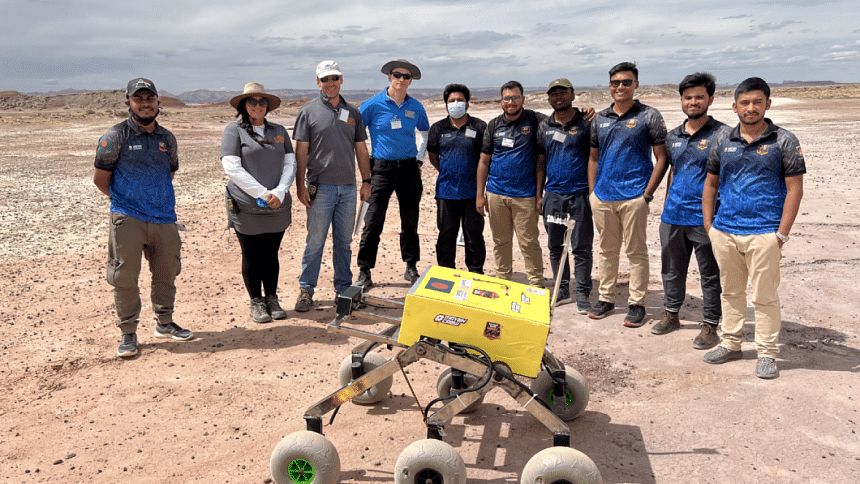
"Robotics and AI are the future of technology, and the developed world is already ahead in this sphere, whereas we are lagging behind," says Prof. Sarwar. "Thus, comes the need to focus more on these areas, especially for those working or studying engineering."
"The fact that we were able to take our country to that stage [in the URC 2022] gives me immense joy and pride," he adds. "There were more experienced teams with better technology. Even then, we were able to outperform them. It goes to show that there is always an opportunity for us to exceed expectations in these competitions, and cement Bangladesh's name in the arena of space exploration."
Prof. Sarwar also believes that the government can play a vital role in presenting Bangladesh as a global leader when it comes to information technology. His belief is that the government will appreciate the efforts of UIU and other universities in this field, and assist them in the journey ahead.
The UIU Mars Rover team's success at the URC 2022 once again proves that Bangladesh is not far behind when it comes to conquering new horizons. The enthusiasm to explore the vastness of outer space and its deepest secrets burns deep within us, especially among our youth. MAVEN might not make it to Mars today, but it will surely inspire and encourage our youth to push their boundaries and achieve the impossible someday.

 For all latest news, follow The Daily Star's Google News channel.
For all latest news, follow The Daily Star's Google News channel. 

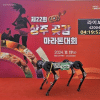

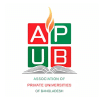




Comments